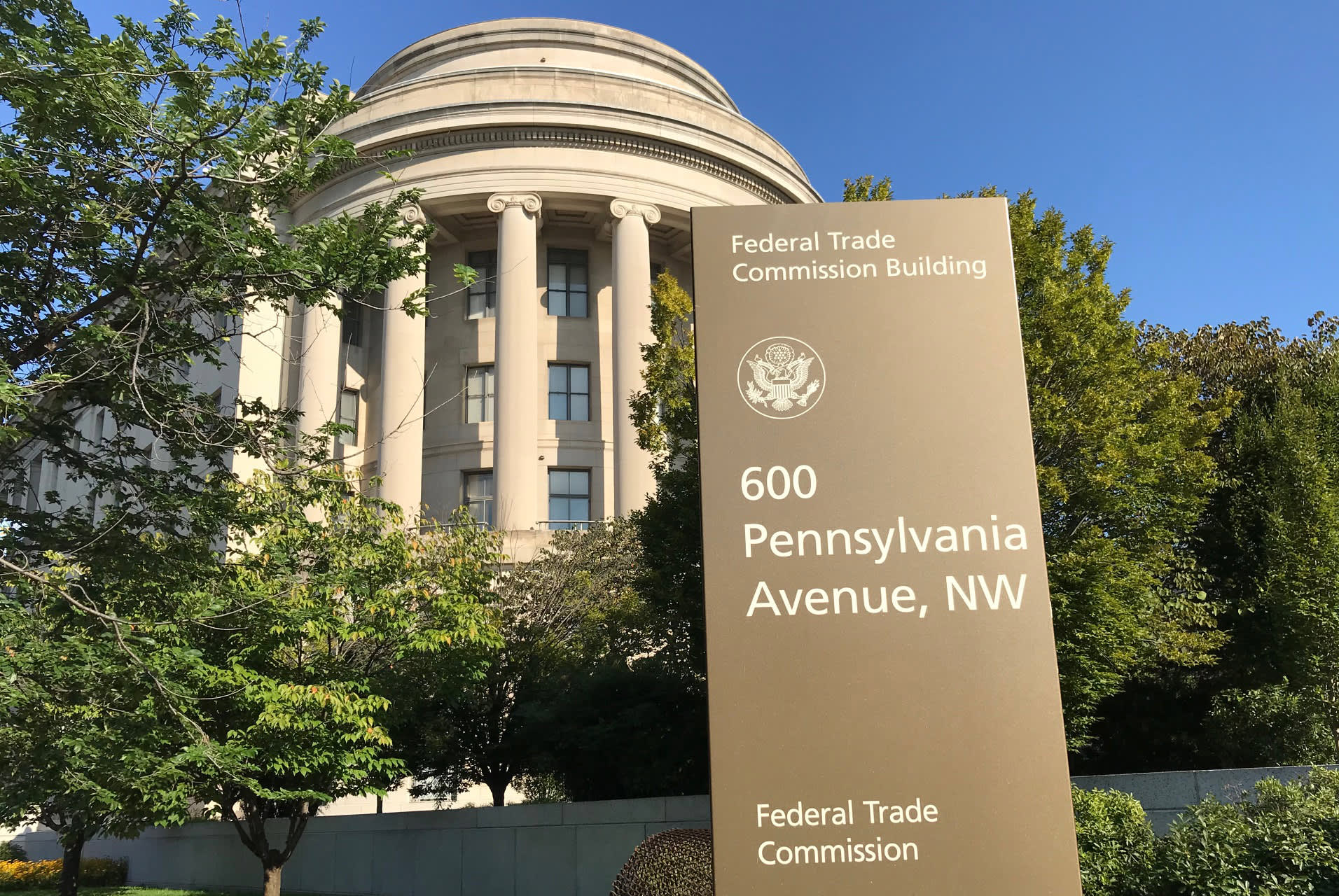
The Federal Trade Commission Building in Washington D.C.
Ashley Stringer | CNBC
The Federal Trade Commission has filed a civil complaint alleging “unfair or deceptive acts” by Beam Financial, a San Francisco start-up behind a savings app that purported to offer above-market interest rates on federally insured deposits.
As CNBC first reported in October, dozens of Beam customers complained that they were unable to access their funds, in some cases for months.
The complaint, filed in federal court in San Francisco on Wednesday, accuses Beam and its founder — 37-year-old Yinan “Aaron” Du — of misleading its customers by claiming they will have “24/7” access to their funds with “no lock-ups.” Instead, the complaint says, customers who have attempted to withdraw money are given the runaround.
“In light of this, many consumers have complained that defendants have simply stolen their deposits,” the complaint says. “Some consumers have highlighted that they have experienced particularly serious hardship because defendants have not returned their money during an ongoing pandemic.”
In a statement, the FTC said Beam “misled users about access to their funds.”
More from Personal Finance:
Depositors struggle to get money back from banking app Beam
Here’s how much your company 401(k) match will be worth
Personal Finance 101: The complete guide to managing your money
“Beam Financial promised convenient 24/7 access to savings, but then people had to wait weeks or months to get their money,” said Andrew Smith, director of the FTC’s Bureau of Consumer Protection.
The complaint seeks unspecified relief for Beam’s customers, as well as an injunction barring the company and Du from further violations.
The complaint also says Beam has failed to deliver on its promise to pay high interest rates, including a base rate as high as 1%. In fact, the complaint says, new customers currently receive a rate closer to 0.04%, similar to what they would receive in a traditional bank account. The complaint also alleges that Beam would stop paying interest on funds that customers requested to withdraw, but then would not return their money for weeks or months afterward.
A spokeswoman for Beam declined to respond to the substance of the FTC complaint, but told CNBC in an e-mail that the company is making progress getting people their money back.
“We have processed 98% of customer funds who were impacted,” the statement said.
Separately, some customers who previously complained about withdrawal requests going unheeded for months told CNBC that their withdrawals were partially fulfilled on Wednesday.
San Diego marketing executive Steve Wolf, who attempted to withdraw his entire $15,000 account balance beginning this summer, said he received a $10,000 deposit into his bank account. There was no word about the remaining $5,000.
Josh Allen of Colorado said his bank notified him of a pending deposit of more than $7,800 from Beam.
In its complaint, the FTC said getting funds returned often required extreme action on the part of customers.
“In numerous instances, consumers have received their money only after telling defendants that they are reporting the problem to government regulatory or law enforcement officials or, alternatively, suggesting they intend to begin legal action,” the complaint said.
In addition to the FTC complaint, Florida depositor Frederick Chang last week filed a proposed class action suit on behalf of Beam’s customers. The company claims to have nearly 187,000 “subscribers,” though a source close to the firm says the number of actual accounts may be closer to 30,000.
Three of Beam’s vendors — Huntington National Bank, which has custody of $2.4 million in Beam deposits, and transaction processing firms Dwolla and Stable Custody Group — have sued Beam in an Ohio court demanding that the company provide them the information necessary to return customers’ funds.
The Beam spokeswoman said the company is “working with Dwolla to resolve any outstanding requests.”
The company has not yet responded in court to any of the lawsuits.
(With additional reporting by Lorie Konish, Dawn Giel, Scott Zamost and Jennifer Schlesinger.)




